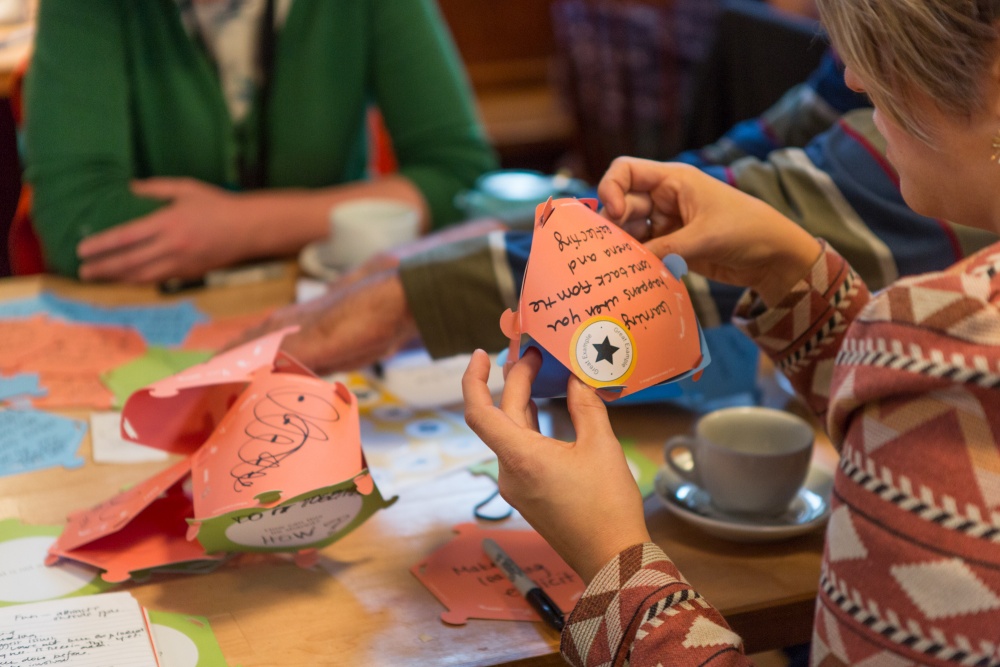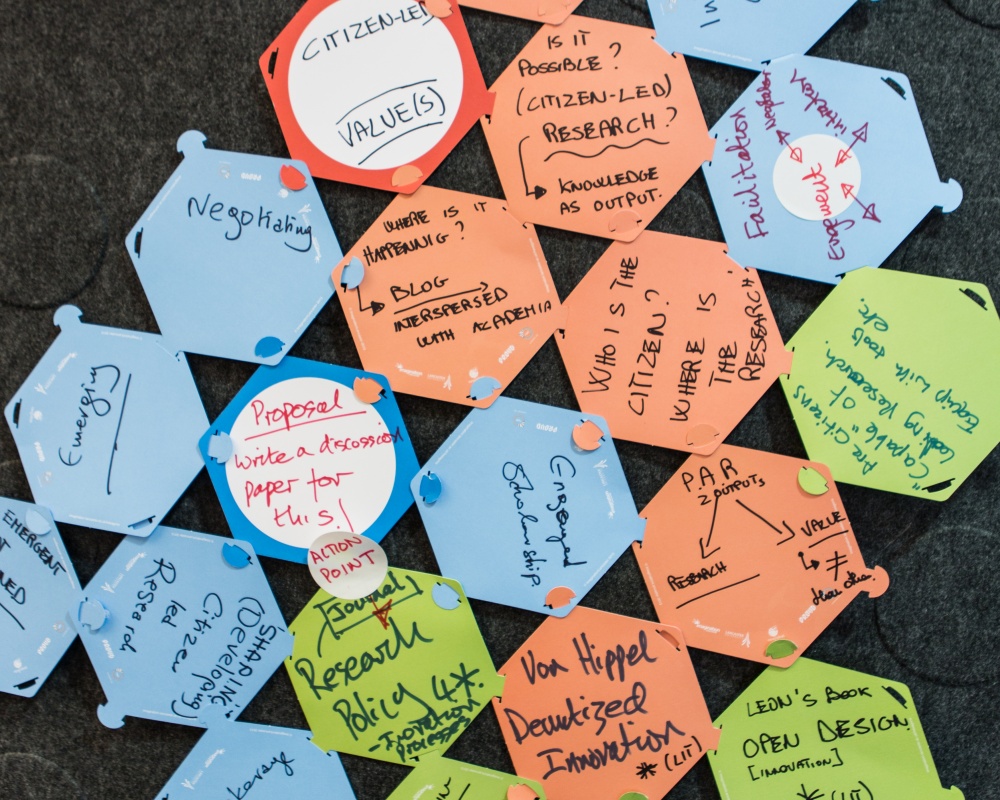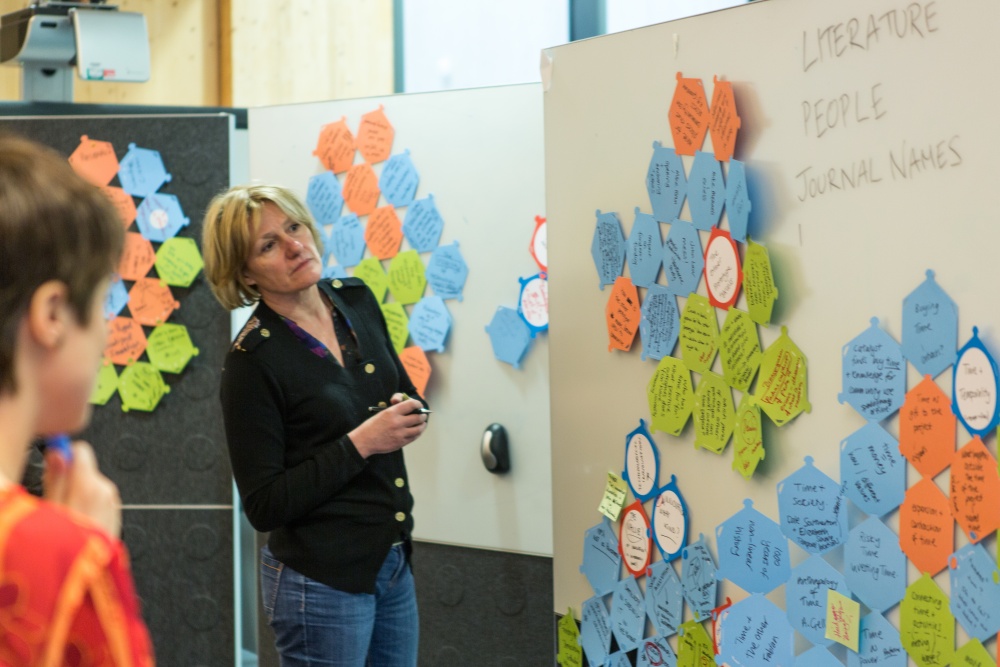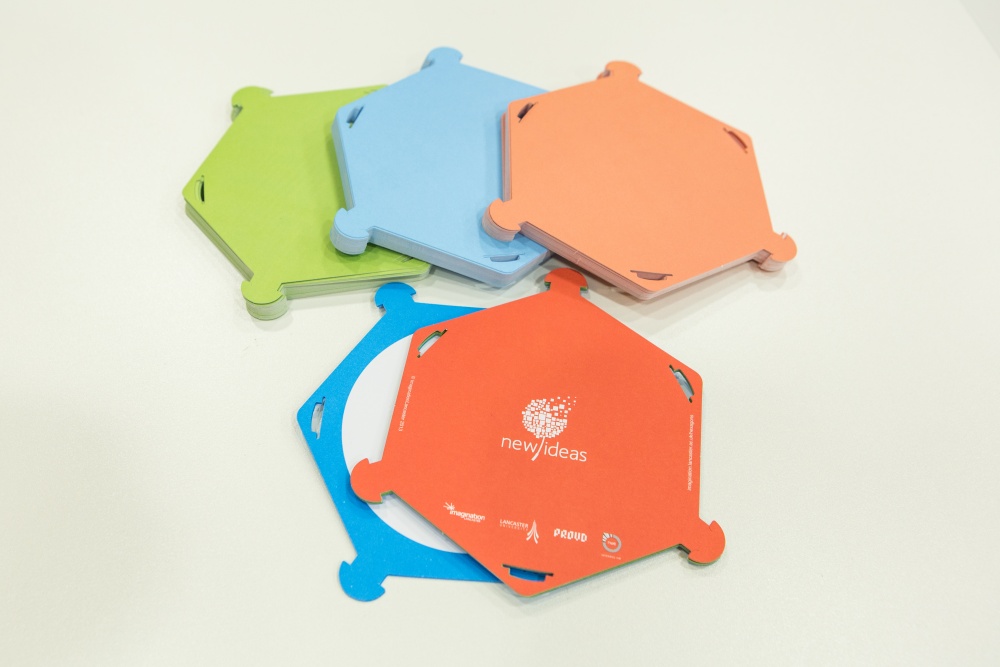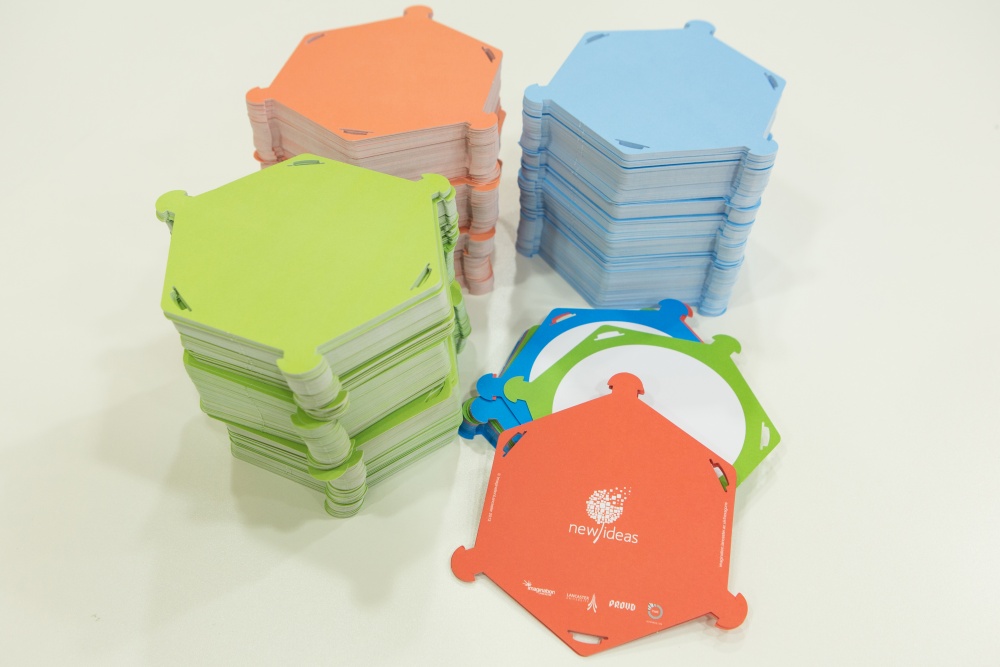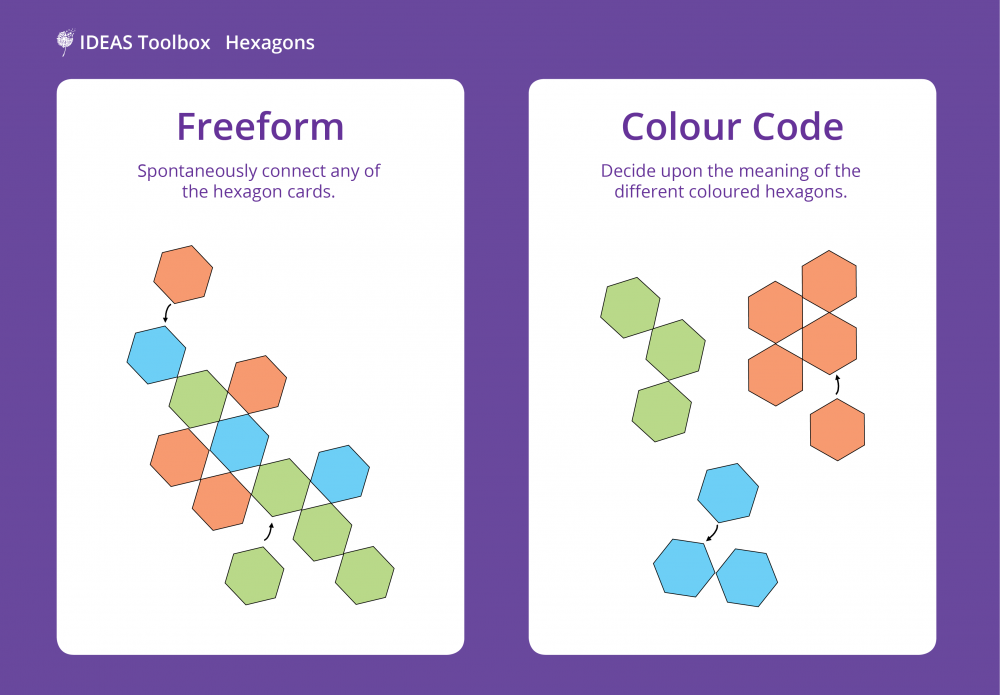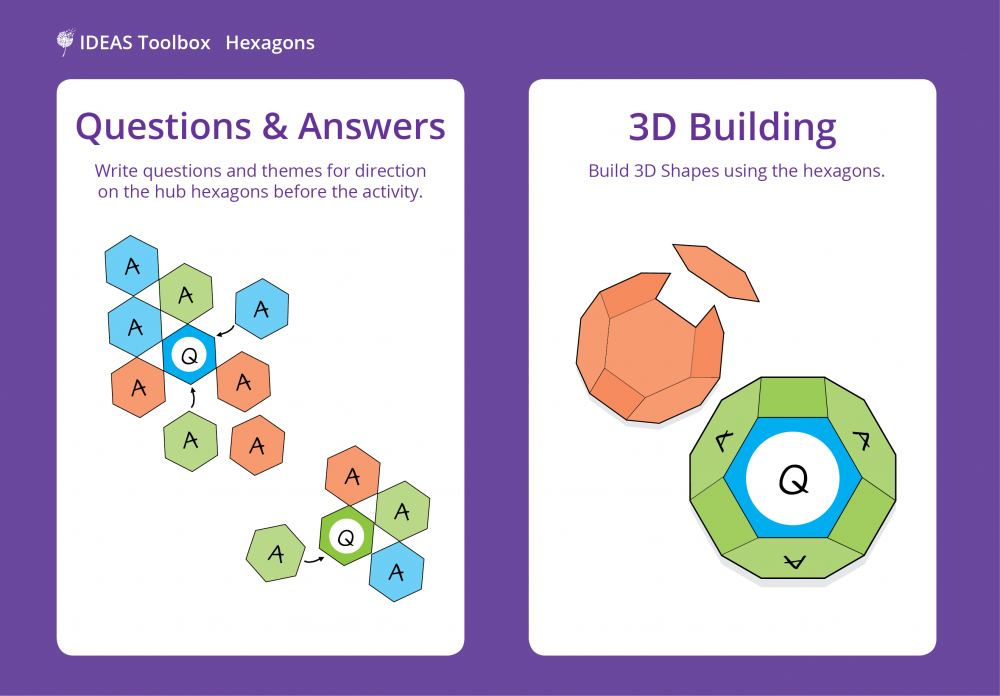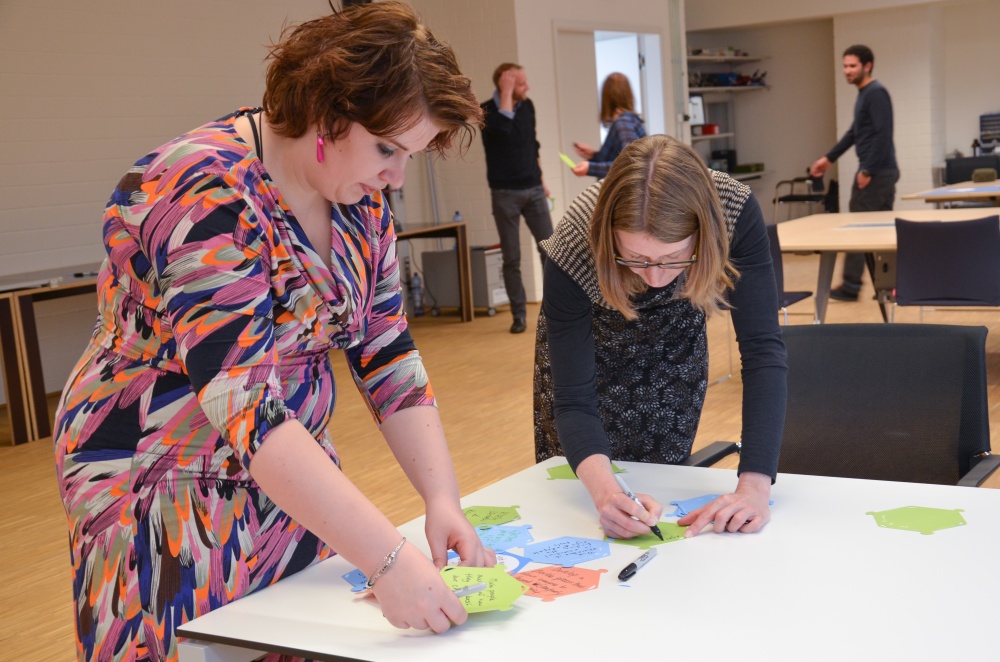The tool was developed as an alternative to post-it notes because we found that once the post-its with ideas written onto them have been put into place, they are difficult to transport and the ‘stickiness’ is often unreliable. We believe that the Hexagon tool gets around these problems but also has further benefits including its flexibility and ability to be customised.
How the Hexagons Work
Each hexagon card has space to write an idea, comment or question on during brainstorming. The card can then be connected to other hexagons in whatever formation the user or users prefer.
The hexagon shaped cards have tabs and slots on them, which means that they can very easily be connected together in multiple directions. Connecting the cards is very easy, which means that almost anyone can use them with little to no prior instruction.
The cards can be connected together across a flat surface, such as a table or they can be built into a 3D structure.
Once connected together, the hexagon cards can be moved from the surface they were built on to another location or displayed on a wall. They are robust enough to stay connected during transportation.
Finally, there the hexagon tools are designed to be highly versatile, which means there are many, many ways of using them. We have tried a few of these ways but as more people use them in different contexts, the more uses we are discovering.
Availability and Requesting Hexagons
The hexagons are available in three different colours: green, blue and orange and two different designs: blank hexagons and hub hexagons. The hub hexagons are ideal for emphasising particular points, questions or titles and the blank hexagons are ideal for the thoughts that connect to the hub hexagons.
Hexagons in either a mixed pack of 60 or mixed bulk pack of 600 from the Lancaster University online shop.
Share How You Have Used the Hexagons
The New IDEAS project strongly encourages people to be inventive in the way that they use the knowledge exchange tools, including the Hexagons, therefore if you discover a new way to use them or adapt our suggestions for use, we would really like to hear about it.


